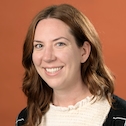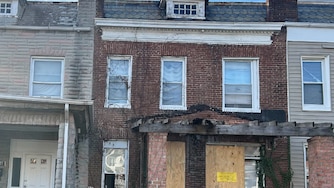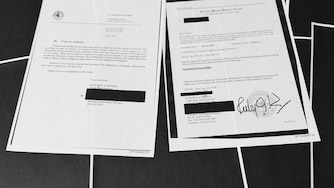None of author Laurie Frankel’s books is set in her hometown of Columbia — but it’s often the place she pictures when she imagines scenes for her bestselling novels.
The Seattle resident is returning to her roots this weekend for the ninth annual Books in Bloom literary festival at Color Burst Park on Saturday. Frankel, 51, will discuss her latest book with Maureen Corrigan, a longtime book critic for the National Public Radio program “Fresh Air.”
The Banner caught up with Frankel this week to talk about her childhood in Howard County and the seeds it sowed for a rich literary career. The interview has been edited for length and clarity.
What was it like growing up in Columbia?
I am not quite the first generation of Columbians but pretty close. It was a really wonderful place to grow up, in part because it has bike paths and tot lots and it’s very safe. It’s a good place to be able to play outside all day and ride around on your bike and not have eyes on you all the time. I spent a million hours in the library. And it’s really, really diverse. I went to Wilde Lake High School and had an English education that I use to this day.
At what point in your life did you discover writing?
As a child, I wrote a lot of letters and stories. I got into journalism editing the paper at Wilde Lake, went to college and thought journalism was going to be it. Instead, I got into academia and went to graduate school for literature, in fact Shakespeare.
When I moved to Seattle, I had six months of being unemployed for basically the first time in my life and this opportunity. Novel writing is something you don’t know whether you can do until you try to do it. But they are too long to just give it a shot for like a weekend. I needed a chunk of time.
How do you come up with ideas for your books?
I tend to write books about things that I am ranting to myself about in the shower or when I’m walking the dog. Probably everyone does that. You’d like the answer to be, “Oh, I’m inspired by this thing that lifts my heart” or whatever. In fact, it’s more like this is the thing that makes me so angry. Eventually, those turn into books for me. Although I want to say that the books are not angry. They are loving and, I hope, funny and hopeful. But they spring from places of rage.

You’ll be talking at Books in Bloom about your fifth novel, titled “Family Family.” What was the internal rant that sparked this story?
This book is about adoption, and I have an adopted kid. The portrayals of adoption that I see are untruthful or insufficient. Adoption narratives tend to fall into two categories — a tragedy for all parties or “love is all you need” and everyone lives happily ever after.
I don’t think either one of those things is true or useful. I wanted to write something else. It took me a really long time to figure out how to tell the story.
Did your daughter read drafts of “Family Family” or weigh in on the story?
I’m often asking her, “Would you get this reference? Do you know this word? How would you say this?” Because I am often writing or voicing kids or teenagers. We’re talking about these characters over dinner as if they’re people we know. She lives with them for ... sometimes the novel takes me like four years. In her case, that’s a quarter of her life. And then she reads them when they’re published.
Are there any parts of your novels that draw from or mirror your own upbringing in Columbia?
None of my books are actually set in Columbia. I have flirted with doing that. Maybe an upcoming book, because Columbia is really interesting.
Though they are set elsewhere, in my head what I am picturing is very much Columbia. Part of “Family Family” takes place in the protagonist’s high school in Seattle, where I live. But the high school that I am picturing is Wilde Lake. She is wandering around her neighborhood and going out with her friends and her boyfriend. Those activities are what I was doing in high school.
Similarly, characters have seeds of my relationships with people I knew here or my grandparents and parents. They’re all over these books in the same way I am all over these books without them actually being about me.
Tell me about your parents.
They live here in Columbia in the house I grew up in. We’re very close still. They’re just very supportive, always very much proponents of education. My mother taught English at Howard Community College for almost her entire career. My dad was an engineer. They’re both huge, huge readers, and there were always books in my house growing up. I sat down and read them, and I was encouraged to [by my parents].

What kind of books?
Mostly fiction. They [my parents] are both novel-bent. I also have since learned that I am very much a novelist. That is what I’m always reading, and that is what I’m always writing. Like people who want to lead with their star sign, this is the piece of information that, if you had it, you would therefore know what it is that I’m all about. I feel like I’m a novelist by way of philosophy more than anything else. And it turns out I inherited that somehow.
Are there writers you admire and want to emulate? If we’re sticking with the star-sign metaphor, who are your literary North Stars?
When I was in high school here, I was reading “The Great Gatsby” and then continued to read it obsessively. I certainly have those first-day authors, meaning when they come out with a book, I will get my hands on it and read it immediately, no matter what it is. Naomi Alderman, Karen Joy Fowler, Ruth Ozeki, Richard Russo, David Mitchell, Kate Atkinson are first-day authors for me. These are people whose books I turn to when I’ve lost my way, when I forget how to write a novel or lose faith.
Maureen Corrigan is interviewing me at Books in Bloom this weekend, so I am currently reading her book, “So We Read On: How The Great Gatsby Came to Be and Why It Endures.” It is blowing my mind on every page.

Is there anything else you want folks to know heading into your appearance at Books in Bloom?
I want to dwell a moment in the wonder that is Books in Bloom. It’s a really fantastic thing to have in a little town, in your little city. Columbia has always been really remarkable in that way.
And I just want to yell from the rooftops about the value of a good education. I learned how to write novels at Wilde Lake High School. I had English teachers who taught me how to read and write, how sentences go together and how to tell stories and read critically. That education has taken me everywhere I’ve gone since.





Comments
Welcome to The Banner's subscriber-only commenting community. Please review our community guidelines.